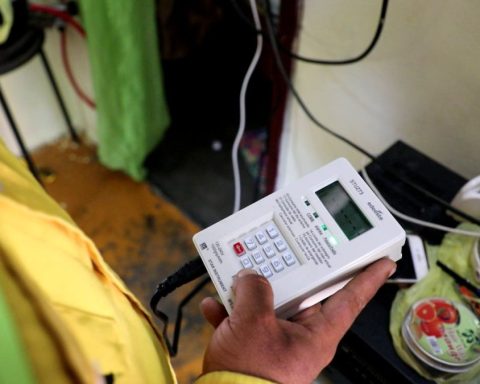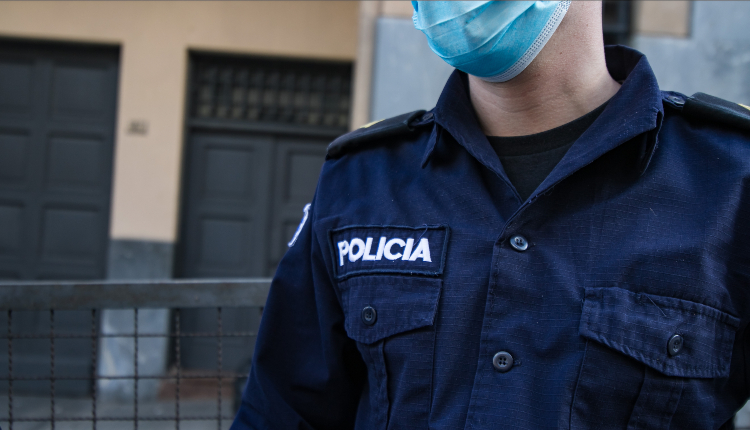The Dominican is exposed in his daily life to high levels of noise that can affect your health, both physically and mentally.
According to the president of the Dominican Society of OtorhinolaryngologyDr. Jose Raul Batista, “Noise pollution in the country is very strong, it is a big problem, since we have many vehicles with poor quality mufflers, a lot of honking and colmadones.”
Batista explains that depending on the labor field of the individual, he will be more or less exposed to noisebeing among the most affected construction workers, military personnel (exposed to gunshots without protection) and personnel working in large industries.
A novelty that he has witnessed in consultations is the number of patients he has received with hearing problems after constantly attending services in churches.
“Now we are receiving many Christian patients who go to worship and come out deaf because the churches are not having adequate control of the sound,” detailed.
The ear, nose and throat specialist commented that, last July, a project was submitted to Congress so that an Early Neonatal Hearing Screening can be carried out on each child born in the country. This test consists of making acoustic measurements from 48 hours after birth, without pain and in less than five minutes, the doctor having the certification of whether the baby hears.
“Most public hospitals don’t. By the time the hearing problem is detected, sometimes the child is already four or five years old and has lost all hearing capacity”, he pointed out as one of the main drawbacks.
According to Batista, another health policy problem is that “none of the Health Risk Insurers (ARS) cover auditory rehabilitation or the placement of implants.” Likewise, he emphasized that schools specializing in otorhinolaryngology be increased, “so that they can increase the opportunities to train professionals in this area.”
On Law 247-4 on Prevention, Suppression and Limitation of harmful and annoying noises that produce noise pollution, said that “it has been enacted since 1994 and is rarely taken into account. It doesn’t run,” she warned.
“Each of us can do individual actions, such as lowering the volume of the radio, not honking the horn, trying to drive vehicles with less cylinder capacity and that make less noise, regulate the use of motors and the use of hearing aids. When young people are 40 years old, they will have auditory traumas, parents must correct children because noise pollution affects the health of human beings”, requested the doctor.
suitable decibels
The decibel (db) is the unit of measurement for sound intensity.
According to Dr. Francina Sasso, physician ENT of the Clínica Unión Médica del Norte, the probability of a population exposed to noise suffering from deafness is considered minimal at exposure levels of 75 decibels for a period of eight hours, that is, people who are normally working with machines with loud noises.
“It’s a complicated issue because the Dominican sometimes doesn’t value his hearing, doesn’t take care of it and thinks he can spend all day listening to loud music.”Otorhinolaryngologist
The factor noise it causes an organic defect in the inner ear, which at the same time develops a functional alteration and can cause a hearing disability in the patient, for this, patients are always given a hearing test.
“The sound level averaged over 24 hours a day should not be greater than 70 decibelsequivalently, should not exceed 75 decibels during an eight-hour workday,” Sasso specified.
“This is where the acoustic traumas that occur at the level of the hearing nerve come from and can produce tinnitus or tinnitus, like buzzing with high-pitched, low-pitched or mixed sounds. It can also lead to hearing loss with the decrease in low frequencies, creating difficulty in communication.

According to Sasso’s explanation, the noise it can cause malaise, stress, sleep disturbance, loss of attention and delay in school. This translates into health costs, low productivity, work or traffic accidents, loss of property value, makes coexistence difficult, and even makes patients who may feel fatigued because they do not listen well, become aggressive.
The specialist warned that the recommended sound levels are 55 decibels in outdoor areas during the day and 35 at night.
“But clearly, that does not happen in this country, people in a nightclub, which is a closed environment, can be exposed to music up to 80 and 90 decibels”, he stressed.
The ENT recommended creating a permanent monitoring staff of noise environment, carry out progressive plans to reduce the noiseeducational campaigns, penalties for offenders, facilitating the child and adult population most exposed to noise carrying out hearing tests, training paramedical personnel and starting these measures with a pilot plan in areas that merit it.
He asked people who know in advance that they are going to be exposed to a large noiseput on protective plugs and if the patient already has tinnitus, listen to white noises, such as rain falling or ocean waves, to “mask that tinnitus”. noise”.

















